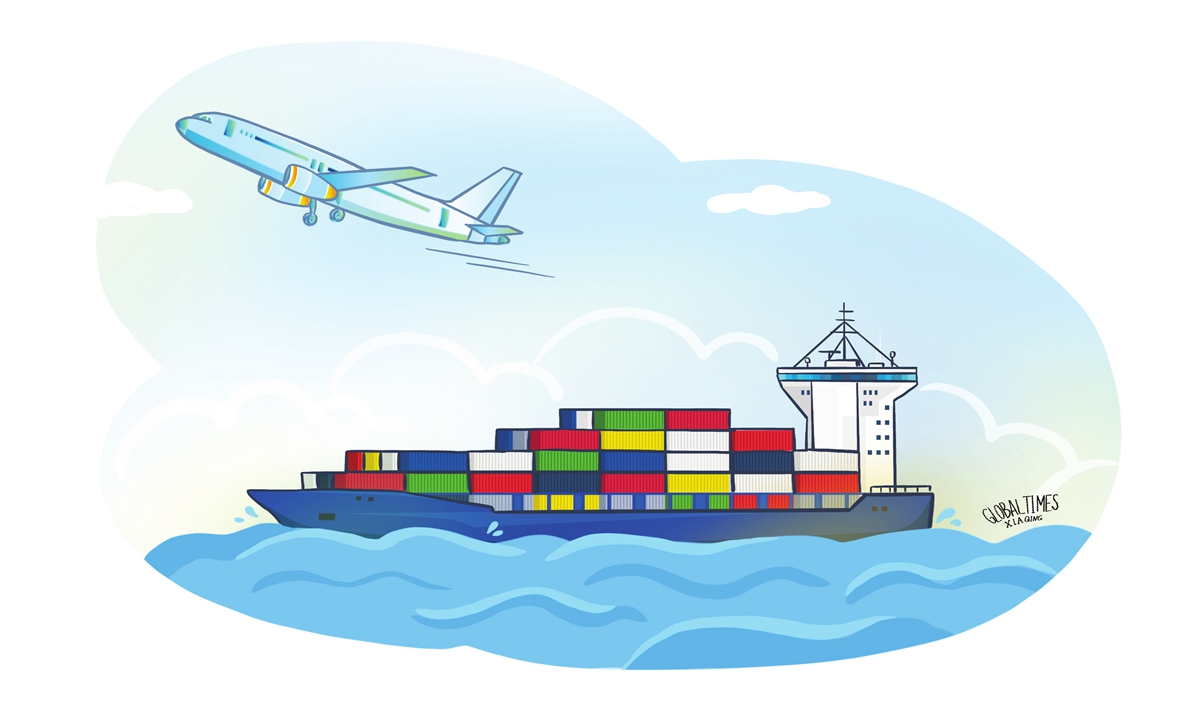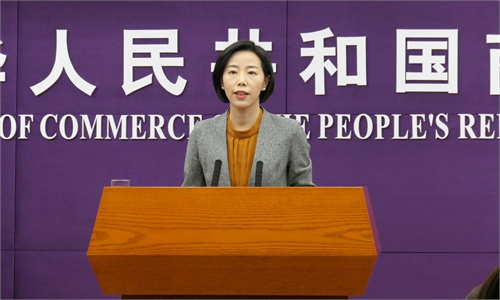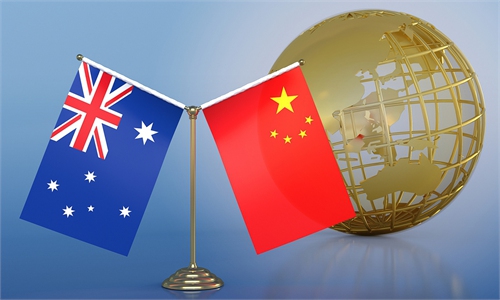
Illustration: Xia Qing/GT
Economic and trade cooperation between China and Australia is steadily recovering. Yet, external naysayers continue to try to undermine this progress by spreading negative narratives. Despite their ill-intentioned efforts, the recovery of trade cooperation between China and Australia will not be undermined by their slander.Australian airline Qantas Airways announced on Tuesday that it will temporarily suspend flights to Shanghai starting on July 28 due to lower-than-expected demand. The airline plans to resume flights once demand has recovered. US media outlet VOA has seized the opportunity to hype up the "weak warming-up of China-Australia relations."
What the American propaganda machine did not mention is that while Qantas announced plans to suspend Shanghai flights, Chinese airlines are actually expanding their presence in the Australian market and intensifying efforts to return to pre-COVID-19 levels.
In April, Qantas Airways operated 44 flights on the route between the Chinese mainland and Australia, accounting for 4.5 percent of the total flights. Chinese carriers dominate the market with a 95-percent share. Many Chinese airlines have already exceeded pre-pandemic flight levels on the route, according to media reports.
Outside the aviation sector, there is no shortage of signs of warming bilateral economic and trade cooperation between China and Australia. Mutually beneficial and complementary economic and trade cooperation between China and Australia encompasses various sectors including energy, minerals, agriculture, and manufacturing. Many aspects are experiencing a recovery better than expected, as both sides are moving forward on the right track in their diplomatic relations after hitting a low point in the past few years.
Over the past two years, economic and trade authorities of China and Australia have maintained close communication at all levels. With joint efforts, positive progress has been made in a series of economic and trade issues between China and Australia. Australia's exports of barley, coal, cotton, wine, and other products to China have gradually resumed. In 2023, bilateral trade rose 4.1 percent year-on-year to $229 billion.
For instance, in August 2023, Australian barley returned to the Chinese market. According to the latest statistics from the General Administration of Customs of China, in the first two months of 2024, the total import volume of barley in China was 2.71 million tons, of which nearly 1.6 million tons of barley were imported from Australia, accounting for about 59 percent. This means that after more than three years, Australia has once again become the largest source of barley imports for China.
Admittedly, a full recovery in areas such as tourism will take time and continued efforts. The important thing is that Australia needs to cherish the positive momentum of recovery and work together with China to tackle the challenges encountered in further recovery.
Facing the complex and ever-changing international economic and trade landscape, China and Australia can make further efforts in boosting free trade, jointly counter the rising protectionism and external political interference to their economic and trade cooperation. It's of great significance to the national interests for Australia to not fall into the narrative traps set by external forces.
Maintaining a good economic and trade relationship between Australia and China not only serves the common interests of both countries, but also benefits the economic stability and prosperity of the region and the world.
China has been Australia's largest trading partner, export market, and source of imports for 15 consecutive years. China is the main importer of agricultural and mineral products from Australia. In 2023, nearly 80 percent of Australia's trade surplus came from trade with China. Australia also imports a large amount of industrial manufactured goods from China, showing strong complementarity in economic and trade relations between the two countries.
As long as Australia can continue to resist the political interference of external forces, the trend of improvement of its trade with China will not change. To promote faster recovery in bilateral economic and trade relations, more joint practical efforts are needed at the economic level.
Looking forward, as China-Australia relations continue to improve, and with the gradual implementation of the Regional Comprehensive Economic Partnership, bilateral economic and trade cooperation between the two countries will be further strengthened, which is expected to bring more tangible interests to both economies amid post-COVID recovery.
The author is a reporter with the Global Times. bizopinion@globaltimes.com.cn



